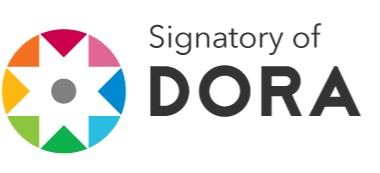Application of disruptive management technologies in pig housing lacking animal welfare: productive, behavioral and economic evaluation
DOI:
https://doi.org/10.36436/24223484.586Keywords:
Economic benefit, gonadotropin inhibition in females, pig production, productive performanceAbstract
In the specific field of animal production, disruptive technologies seek to progress in the life quality of individuals in confinement conditions and provide solutions to health and production problems generated by the high stocking rate per unit area. As a particular case, this study addresses the problem of emerging management in the field of pig behavior to generate better production, economic benefit, and environmental sustainability in conditions that value life and animal welfare. The convergent management techniques in the fattening stages have always had the male as an individual subjected to surgical or biological castrations in order to control the sexual behavior of puberty and promote productive efficiency in group living conditions, but not in the females that must reach a live slaughter weight at an older age due to their condition as females and go through puberty in sexually active groups, decreasing their daily weight gains and lengthening the age at slaughter. It is then possible to change the paradigm and use biological castration not only in both males and females, to improve productive efficiency and the animal environment by reducing fights and bodily damage in early puberty that are a consequence of selection and breeding. hybridization crosses today. Biological innovation guarantees productivity, well-being, and economic benefit superior to routine convergent techniques, regardless of the hybrids exposed to the new technology.Downloads
References
Braun RO. Indicators animal behavior in growing hybrid sows subjected to castration by biological immunization. 70th Annual Meeting of the European Federation of Animal Science Abstracts. 2019. Ghent, Belgium. Abstract book 40(30534):419. isnn 1382-6077.
Steibel JP. Genética del comportamiento agresivo en cerdos. [Memorias del IX Congreso de Producción Porcina del Mercosur]. 2018. Córdoba. Argentina. 135-139 p.
Franco V, Muñoz MV, Dalla-Via S, Braun, RO. Porcicultura de precisión: Inmunización biológica en hembras para mejorar el rendimiento productivo. Negocios Agroalimentarios [en línea]. 2022 7(1):5-11.
Duarte JL, Cantet RJ, Rubio YL, Bates RO, Ernst CW, Raney NE, Steibel JP. Refining genomewide association for growth and fat deposition traits in an F pig population. J Anim Sci. 2016 abr.;94(4):1387-97. doi: https://10.2527/jas.2015-0182. pmid: 27135998.
Wurtz KE, Siegford JM, Bates RO, Ernst CW, Steibel JP. Estimation of genetic parameters for lesion scores and growth traits in group housed pigs. J Anim Sci. 2017 oct.;95(10):4310-4317. doi: https://10.2527/jas2017.1757. PMID: 29108070.
Palma-Granados P, Lara L, Lachica M, Seiquer I, Fernández-Fígares I, Haro A, Candek-Potokar M, Nieto R. Estudio del potencial de crecimiento de cerdos Ibéricos inmunocastrados en el proyecto treasure: resultados preliminares. AECERIBER (eds). Sólo Cerdo Ibérico. 2018 abr.; 39:40-47. Disponible en: https://produccioncientifica.ugr.es/documentos/63bcb8d-5f8c8215fcce54050
Ghiglione FA, Braun RO. Modelo de evaluación sistémica en la gestión integral de pequeñas y medianas empresas porcinas. Perspectivas Ciencias Económicas y Jurídicas UNLPam, 2021 jul.;11(1):155-168. [issn: 2250-4087 Impreso - e-issn: 2545-8566 en línea]. Disponible en: https://cerac.unlpam.edu.ar/index.php/perspectivas/article/view/4807/5867
Sosa-Bruno J, Braun, RO. Bienestar animal y productividad de gallinas ponedoras alojadas en un sistema a piso libre de jaulas en el Departamento Capital de La Pampa. [tesis de pregrado; digital]. [Santa Rosa]: UNLPam; 2018. 74 p. Tesis de pregrado Universidad Nacional de La Pampa, Argentina. Disponible en: https://repo.unlpam.edu.ar/handle/unlpam/1635
Downloads
Published
How to Cite
Issue
Section
License
Copyright (c) 2022 Ciencias Agropecuarias

This work is licensed under a Creative Commons Attribution-NonCommercial-NoDerivatives 4.0 International License.







